15 Most Sustainable Jeans Brands: The Conscious Consumer’s Guide
Affiliate Disclosure
Hey fellow impactful ninja ?
You may have noticed that Impactful Ninja is all about providing helpful information to make a positive impact on the world and society. And that we love to link back to where we found all the information for each of our posts.
Most of these links are informational-based for you to check out their primary sources with one click.
But some of these links are so-called "affiliate links" to products that we recommend.
Why do we add these product links?
First and foremost, because we believe that they add value to you. For example, when we wrote a post about the environmental impact of long showers, we came across an EPA recommendation to use WaterSense showerheads. So we linked to where you can find them. Or, for many of our posts, we also link to our favorite books on that topic so that you can get a much more holistic overview than one single blog post could provide.
And when there is an affiliate program for these products, we sign up for it. For example, as Amazon Associates, we earn from qualifying purchases.
What do these affiliate links mean for you?
First, and most importantly, we still only recommend products that we believe add value for you.
When you buy something through one of our affiliate links, we may earn a small commission - but at no additional costs to you.
And when you buy something through a link that is not an affiliate link, we won’t receive any commission but we’ll still be happy to have helped you.
What do these affiliate links mean for us?
When we find products that we believe add value to you and the seller has an affiliate program, we sign up for it.
When you buy something through one of our affiliate links, we may earn a small commission (at no extra costs to you).
And at this point in time, all money is reinvested in sharing the most helpful content with you. This includes all operating costs for running this site and the content creation itself.
What does this mean for me personally?
You may have noticed by the way Impactful Ninja is operated that money is not the driving factor behind it. It is a passion project of mine and I love to share helpful information with you to make a positive impact on the world and society. However, it's a project in that I invest a lot of time and also quite some money.
Eventually, my dream is to one day turn this passion project into my full-time job and provide even more helpful information. But that's still a long time to go.
Stay impactful,
Amid growing concerns about the textile industry’s environmental impact, there is pressure to find greener clothes for your wardrobe, from denim jackets to everyday jeans. Unfortunately, fashion greenwashing makes it harder for you and all other consumers to figure out which clothing brands offer the most eco-friendly garments. So, we had to ask: Which are the most sustainable jeans brands?
The most sustainable jeans brands are Unspun, E.L.V. DENIM, and Nudie Jeans, which prioritize low-impact renewable materials, reduce waste, and strive for circularity. In addition, MUD Jeans and Triarchy reduce carbon emissions and save production water and energy.
If you are searching for the perfect pair of jeans to add to your wardrobe without negatively impacting the soil, the water, the animals, and other people, there is a brand for you. So, let’s keep reading to learn more about the most sustainable jeans brands and how they ensure sustainable, ethical practices.
Here’s How We Selected the 15 Most Sustainable Jeans Brands
Jeans can be one of the highest-impact and least sustainable clothing items because their iconic look is often the result of water- and energy-intensive washing and finishing processes. Additionally, the ever-increasingly popular stretch jeans variety often contains synthetic fabrics, which release microplastics while washing and don’t biodegrade.
“Sustainable: The ability to be maintained at a certain rate or level | Avoidance of the depletion of natural resources in order to maintain an ecological balance”
Oxford Dictionary
The brands on this list were chosen based on their commitment and actions to promote sustainable practices while reducing the environmental impacts of the textile industry.
They are transparent about their materials, processes, and workforce management within their supply chain.
Some brands focus their efforts on reducing waste and optimizing natural resources while others strive to reduce the carbon footprint of their clothes.
All of these brands share the commitment to reshape the textile industry toward a more sustainable and Earth-friendly sector.
These Are the 15 Most Sustainable Jeans Brands
Most Sustainable Jeans Brands
Overall, these jeans brands are sustainable. Yet, they take various approaches to reduce environmental impacts and uphold ethical standards. Let’s dive into each brand and find out more.
Unspun: Made-to-Order Denims From Low Impact, Localized, and Automated Production
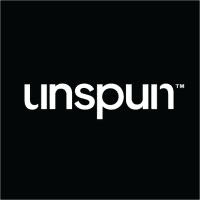

“We’re refashioning the status quo by building new ways to manufacture and new ways to think about the clothes we wear.”
Unspun
🌎
How do they ensure their sustainability?
Unspun’s sustainability efforts focus on reducing waste via their zero-inventory and on-demand business model.
- They offer made-to-order denim jeans. As their products are tailored to each order, they can eliminate the need to have a vast inventory and size range. Furthermore, they invented VegaTM, a 3D weaving technology that enables a one-step jump from yarns to clothes, eliminating cutting and sewing together with all the resulting fabric scraps.
- Consequently, their supply chain has fewer links, permitting greater locality and a lower transporting carbon footprint. In comparison with denim jeans made with air-jet weaving following the typical fashion supply chain, a pair of Unspun jeans made with 3D weaving following the Vega supply chain reduces global warming potential by 24%, primary energy demand by 25%, and blue water consumption by 1.4%.
- Lastly, Unspun is certified by B Corporation and Bluesign®.
🌐
How do they ensure their ethics?
Unspun traces most of their supply chain and visits their suppliers regularly.
🤝
Are they part of any giving-back programs?
Unspun is not known to be part of any giving-back programs.
🛍️
What is their product range?
- Best for: menswear, womenswear
- Product range: denim jeans, accessories
- Price range: $$$
- Size range: made to order, tailored to size
E.L.V. DENIM: Timeless Denim Apparel Made With 100% Upcycled Materials
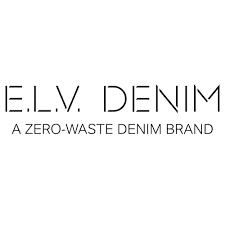

“With considered upcycling and fabric-first curated sourcing, we can meet the global demand for design-led luxury fashion and be kinder to the environment.”
E.L.V. DENIM
🌎
How do they ensure their sustainability?
E.L.V. DENIM‘s commitment to sustainability lies in their zero-waste ethos.
- They source second-hand jeans and other existing garments, for example, silk scarves and cotton shirts, to upcycle the materials for their denim clothes. All their designs, down to the leather label, are upcycled from existing garments that would otherwise be sent to landfill.
- Additionally, offcuts are reconstructed as patchwork fabrics and reincarnated as new materials, such as paper, while smaller threads are turned into insulation. They advocate against overconsumption and enable trading in and rotating pre-loved denim jeans via their partnership with Reskinned and Curate & Rotate.
- Lastly, E.L.V. DENIM sources and manufactures their products locally within East London to reduce the climate impact of long-distance shipping.
🌐
How do they ensure their ethics?
E.L.V. DENIM ensures their ethics by keeping their production in the UK with partners who have high social and quality standards. The artisans who work on their denim clothes are paid fairly for their work. As well, E.L.V. DENIM traces most of their supply chain and visits their suppliers regularly.
🤝
Are they part of any giving-back programs?
E.L.V. DENIM works with local schools and universities, providing fabric for textile classes.
🛍️
What is their product range?
- Best for: womenswear, menswear
- Product range: denim, shirts, pants, shorts, jackets, blazers, jumpsuits, playsuits
- Price range: $$$$
- Size range: XS–L
Nudie Jeans: Sustainable Denim Jeans Come With Free Repair for Life


“When we started Nudie Jeans in 2001, we decided that environmental awareness and human rights would permeate everything we did.”
Maria Erixon, Co-Founder of Nudie Jeans
🌎
How do they ensure their sustainability?
Nudie Jeans promotes sustainability by sourcing a high proportion of low-impact materials, including organic cotton and recycled cotton.
- Of all fibers they used in 2022, 95.6% were organic, certified, or recycled fibers. 2022 was also the sixth full year in which Nudie Jeans used exclusively certified organic cotton in all their cotton products.
- Additionally, they ensure their sustainability by using renewable energy in their supply chain to reduce their carbon footprint.
- Lastly, Nudie Jeans strives to extend the life-cycle of denim jeans with initiatives to repair, reuse, and recycle. They offer free repair of Nudie Jeans no matter when or where they are bought at one of their Repair Shop or Repair Partner or by sending jeans owners a free DIY repair kit. In 2022, they repaired 65,386 jeans for free. Nudie Jeans also offers a 20% discount after you send in your pre-loved jeans to be washed, repaired, and resold in their Reuse range. Once more in 2022, they sold 3,984 pairs of Reuse jeans. When repairing and reusing are not possible, they put the fabrics that are reclaimed from used garments, production seconds, and leftovers into recycling projects.
🌐
How do they ensure their ethics?
Nudie Jeans strives to be as transparent as possible about how their products are made.
- The full list of all their suppliers is available for download on their website.
- Most of these suppliers are certified by Fair Wear Foundation, Fairtrade International – Small Producers Organisations, Global Organic Textile Standard (GOTS), and Sedex Members Ethical Trade Audit – SMETA Best Practice Guidance, ensuring living wages and fair working conditions for workers making Nudie Jeans denim jeans.
🤝
Are they part of any giving-back programs?
Nudie Jeans has donated directly to various charity initiatives. For example, in 2022, they made monetary and jeans donations to UNICEF (to Ukrainian children and their families), Sustainably Crafted Clothing, Räddningsmissionen (The Rescue Mission), Thread Together, and Whitechapel School.
🛍️
What is their product range?
- Best for: menswear, womenswear
- Product range: shirts, hats, scarves, pants, coats, jackets, blazers
- Price range: $$$
- Size range: XS–XL
MUD Jeans: Quality Jeans Made Ethically With Organic and Denim


“With our circular philosophy, we want to design our products in a way that they can be reused, recycled and upcycled easily.”
MUD Jeans
🌎
How do they ensure their sustainability?
MUD Jeans prioritizes sustainability by committing to circular principles in every step of the life cycle of their denim products, including design, materials, production techniques, and end-of-life.
- For one, they recycle fabrics and water across the supply chain. On top of that, their factory’s laundry recycles 95% of their water through reverse osmosis. Most of their jeans are also made from a mix of low-impact certified organic cotton, up to 40% post-consumer recycled cotton (recovered from jeans they take back), and a maximum of 2% recycled elastane (also known as spandex). MUD Jeans has also replaced PP spray with Cradle2Cradle indigo dye to make their product toxin-free.
- Furthermore, they are transparent about the environmental impacts of their clothes by sharing their annual life cycle analysis, which includes the methods they used to lower their water and carbon footprint.
- Lastly, their “Lease a Jeans” program encourages consumers to own less and recycle more.
🌐
How do they ensure their ethics?
MUD Jeans is fully transparent about their manufacturing processes, maintaining fair conditions for workers.
- They consciously maintain a small supply chain of three recyclers, three fabric producers, and one jeans manufacturer, enabling clear oversight over who makes their jeans, how, and under what conditions.
- They also uphold all their main supply chain partners to their Code of Conduct, which covers the ILO’s Four Fundamental Freedoms principles.
🤝
Are they part of any giving-back programs?
MUD Jeans partners with Justdiggit to regenerate trees and revive deforested areas. For every pair of jeans sent back to them, they donate that pair to Justdiggit to restore one tree. The nonprofit organization uses a special pruning technique to regenerate forgotten tree stumps in previously deforested areas in Sub-Saharan Africa, bringing back trees, increasing carbon sequestration, cooling down the site, increasing water retention, and promoting biodiversity.
🛍️
What is their product range?
- Best for: womenswear, menswear
- Product range: jeans, jackets, shirts, shorts, skirts, accessories
- Price range: $$
- Size range: XS–XL
Triarchy: Plastic-Free Stretch Denim Made Ethically, Responsibly, and Sustainably
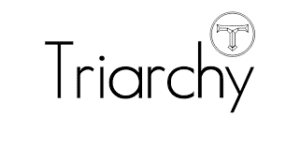
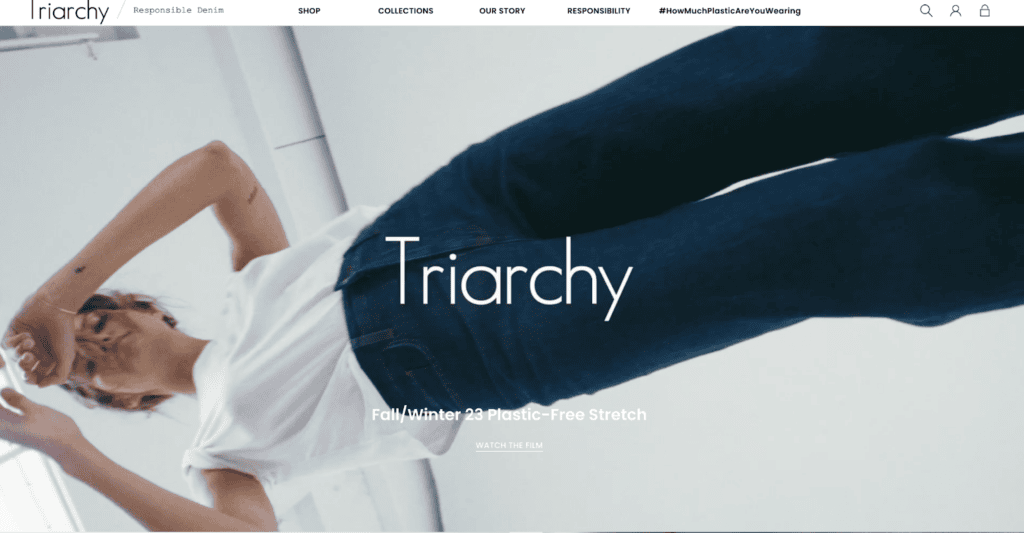
“Triarchy exists to outfit our customer with the best pair of jeans possible. In every sense of the word best.”
Triarchy
🌎
How do they ensure their sustainability?
Triarchy commits to plastic-free stretch denim.
- They source natural rubber instead of conventional petroleum-based plastic so that their denim clothes are microplastic-free and degrade in a natural environment within two years. Low-impact materials, including GOTS-certified organic cotton and GRS-certified recycled cotton, account for a high proportion of their denim materials. Further down the life-cycle in the manufacturing stage, Triarchy uses advanced technology such as ozone, e-flow, and laser processes to replace harmful wash practices that depend on chemicals.
- Additionally, they reduce water use with a closed-loop system and recycle all textile offcuts.
- Lastly, they offset the carbon for everything they make, ensuring every pair of Triarchy denim jeans is carbon neutral.
🌐
How do they ensure their ethics?
Triarchy is fully transparent about their supply chain and the ethics within their suppliers’ factories. They disclose all of their responsibility data via third party auditor GreenStory and expose their supply chain to Renoon. Their Supplier Code of Conduct covers the International Labour Organization’s Four Fundamental Freedoms principles.
🤝
Are they part of any giving-back programs?
Triarchy is fully transparent about their supply chain and the ethics within their suppliers’ factories. They disclose all of their responsibility data via third-party auditor GreenStory and expose their supply chain to Renoon. Their Supplier Code of Conduct also covers four of the ILO’s Fundamental Principles and Rights at Work.
🛍️
What is their product range?
- Best for: womenswear
- Product range: denim, jackets, blazers, shorts
- Price range: $$$$
- Size range: XS–L
ARMEDANGELS: Sustainable Clothing Brand Plus an Agent of Lifestyle Change


“So starting out with the humble tee, we took our oath against wage slavery, chemical shortcuts, and mass-producing pure crap, and transformed ourselves into one of the first clothing brands in all the land to put people and planet first.”
ARMEDANGELS
🌎
How do they ensure their sustainability?
ARMEDANGELS ensures sustainability by reducing carbon footprints while enabling people to change their lifestyles to fight climate change.
- The brand innovates to cut down carbon emissions in their supply chain, starting with sourcing a high proportion of eco-friendly materials. Specifically, they use GOTS-certified organic cotton fabrics, GRS-certified recycled fabrics, GOTS-and RWS-certified organic wool fabrics, and FSC/PEFC-certified wood-based fabrics like TENCELTM Modal.
- Additionally, ARMEDANGELS chooses materials with the lowest carbon footprint possible, for example, opting for modal and lyocell over silk or natural fabrics over fossil-based synthetic fabrics while increasing recycled content, such as recycled wool and recycled cotton. For example, within a year, the share of recycled cotton in their DetoxDenim jeans increased from 5% to 37%, with some jeans in the collection containing 100% recycled cotton.
- Lastly, ARMEDANGELS’s efforts to encourage lifestyle change include care and repair guides to keep garments in circulation longer. They also have a resale platform that facilitates traded-in items to be sold again as second-hand clothes or recycled as fibers for new clothes.
🌐
How do they ensure their ethics?
ARMEDANGELS ensures their ethics by only working with trusted partners to deliver decent wages and workers’ safety.
- They directly and actively monitor all their suppliers and the suppliers’ nominated subcontractors via an on-site and online Internal Due Diligence Check and Self-Assessment, external audits by Fair Wear Foundation (FWF), Global Organic Textile Standard and third-party audits, continuous support, and tailored training programs by third parties.
- On top of that, ARMEDANGELS ensures payment of a living wage in part of their supply chain and pays a markup where they notice wage issues via the living wage project.
- Most importantly, they are fully transparent about the journey from raw material to their products, especially where people and animals are involved, and the impacts of their actions.
🤝
Are they part of any giving-back programs?
ARMEDANGELS ensures their ethics by only working with trusted partners to deliver decent wages and workers’ safety.
- They directly and actively monitor all their suppliers and the suppliers’ nominated subcontractors via an on-site and online Internal Due Diligence Check and Self-Assessment, external audits by Fair Wear Foundation (FWF), Global Organic Textile Standard and third-party audits, continuous support, and tailored training programs by third parties.
- On top of that, ARMEDANGELS ensures payment of a living wage in part of their supply chain and pays a markup where they notice wage issues via the living wage project.
- Most importantly, they are fully transparent about the journey from raw material to their products, especially where people and animals are involved, and the impacts of their actions.
🛍️
What is their product range?
- Best for: kidswear, menswear
- Product range: denim jeans, jackets, jumpsuits, shorts, skirts, T-shirts
- Price range: $$
- Size range: XS–XXL
Boyish: Sustainable Women’s Denim Centered on Vintage Silhouettes With a Modern Update
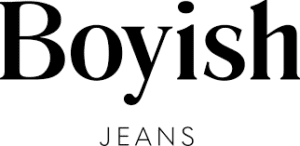
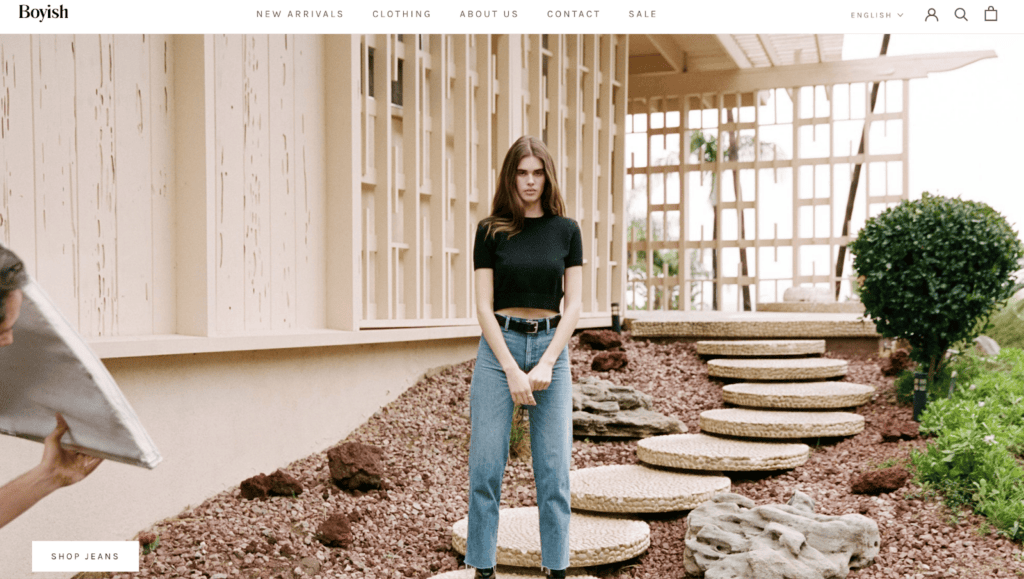
“All jeans are produced with sustainable fabrics through a completely environmentally-friendly and cruelty-free process.”
Boyish
🌎
How do they ensure their sustainability?
Boyish ensures sustainability by focusing on low-impact fabrics and environmentally friendly, cruelty-free processes.
- A high proportion of their collections are made with zero-waste materials, particularly recycled cotton, deadstock fabrics, cutting waste, recycled paper (for hang tags), and recycled metal (for buttons, rivets, and other hardware). They build their denim jeans on GRS-certified recycled fabrics and OCS-certified organic cotton. For the stretch elements, Boyish sources plant-based biodegradable TENCEL™ lyocell and TENCEL™ x REFIBRA™ to replace traditional plastic fibers. Further down the life-cycle in the manufacturing stage, Boyish focuses on using less harmful chemicals during the dyeing and washing process. Specifically, their production relies on natural plant-based dyes, low-sulfate indigo dyes, ozone wash, faux stone wash, and nanobubbles.
- Additionally, they reduce water usage to one-third of the amount typically needed to produce a pair of jeans by recycling water, reducing dip times, neutral enzymes, vapor water, and laser machine finishing.
- Lastly, Boyish delivers their products in 100% compostable shipping bags that break down in less than a year.
🌐
How do they ensure their ethics?
Boyish ensures their ethics by keeping a transparent and simple supply chain.
- All suppliers sign a Code of Conduct that covers four of the ILO’s Fundamental Principles and Rights at Work.
- Some of their suppliers are also certified by Sedex Members Ethical Trade Audit – SMETA Best Practice Guidance. On top of that, Boyish makes annual visits to the factories and the farms where they source their organic cotton to meet the people who craft their jeans.
- Lastly, they partner with Intertek for third-party auditing.
🤝
Are they part of any giving-back programs?
Boyish is not known to be part of any giving-back programs.
🛍️
What is their product range?
- Best for: womenswear
- Product range: jackets, jeans, overalls, shirts, skirts, dresses, shorts
- Price range: $$$
- Size range: XXS–XL
non: Raw Selvedge Denim Jeans Designed to Last


“non is committed to developing circular design and zero-waste production processes to reduce our future impact on the planet.”
non
🌎
How do they ensure their sustainability?
non ensures their sustainability by sourcing low-impact materials, reducing textile waste, and cutting down waste and energy consumption.
- Firstly, the fabrics used for their denim jeans and jackets consist of 50% organic cotton and 50% recycled cotton, which have significantly lower environmental impacts than the virgin cotton conventionally used in denim fabrics.
- Secondly, non reduces textile waste by reclaiming cotton from the mill’s production process for their fabrics and recycling all off-cuts and waste materials from manufacturing into new yarn. Further down the life-cycle in the manufacturing stage, non implements water- and energy-saving techniques such as dope dyeing and laser and ozone finishing.
- Last but not least, non strives towards circularity by using recycled materials (textiles and packaging) and facilitating recycling of their products at end-of-life. Specifically, non has partnered with EON to digitize all goods with a digital ID (a scannable NFC tag) containing circularity data, like fabric composition, to allow better end-of-life management. Users can also scan the tag to find care instructions to extend the garment’s lifespan.
🌐
How do they ensure their ethics?
non ensures their ethics by binding their suppliers with a Code of Conduct covering some of ILO’s Fundamental Principles and Rights at Work.
- They also use the Global Living Wage Coalition benchmark to define a living wage.
- Much of their supply chain is also certified by Bluesign®, OEKO-TEX® STeP, and Social Accountability International – SA8000, including the entire final production stage.
- Lastly, they trace most of their supply chain.
🤝
Are they part of any giving-back programs?
non is not known to be part of any giving-back programs.
🛍️
What is their product range?
- Best for: unisex
- Product range: jeans, jackets, tracksuits, bags, hats, caps
- Price range: $$$
- Size range: S–XL
Kings of Indigo: Clean Denim Jeans – Quality Wear for the Next Era


“Our commitment to the cause has a 360 approach – we leave no stone unturned.”
Kings of Indigo
🌎
How do they ensure their sustainability?
Kings of Indigo prioritizes the use of planet-friendly materials, including recycled fabrics, organic cotton, hemp, linen, and TENCELTM.
- They focus on repairing, recycling, reusing, and upcycling to reduce waste. 20% of their denim apparel is made out of 100% GRS-certified recycled materials.
- Kings of Indigo also strives to reduce water usage during manufacturing and in consumers’ homes. 60% of their denim jeans collection has a low water impact, according to Jeanologia’s Environmental Impact Measuring (EIM). They also offer garments treated with Polygiene® and LABFRESH. These treatments help clothes stay fresh longer and act as a repellent against stains and odor, reducing the need for frequent washing and drying in consumers’ homes.
- Additionally, Kings of Indigo aims to have clean transport, delivering their clothes exclusively by boats and trucks. Most importantly, they offer customers complete transparency about the journey of their products, from cotton to consumer. They also use Retraced technology, which maps out their full supply chain, ruling out any and all greenwashing.
🌐
How do they ensure their ethics?
Kings of Indigo ensures their ethical and responsible production by building long-term relationships with carefully selected and valued suppliers.
- They also uphold their suppliers to their Code of Conduct, which covers the ILO’s Four Fundamental Freedoms principles.
- All direct suppliers have a valid social audit in place, including Amfori BSCI, SEDEX SMETA, or Fair Wear Foundation.
🤝
Are they part of any giving-back programs?
Kings of Indigo is not known to be part of any giving-back programs.
🛍️
What is their product range?
- Best for: menswear, womenswear,
- Product range: shirts, denim, dresses, pants, jackets, blazers, T-shirts, shorts
- Price range: $$
- Size range: XS–XXL
Rudy Jude: Plant-Dyed, Organic Clothes for Children and Adults


“We work hard behind the scene to provide you with full transparency into the sustainability of our practices and our suppliers”
Rudy Jude
🌎
How do they ensure their sustainability?
Rudy Jude prioritizes sustainability by using a high proportion of low-impact organic cotton.
- Their cotton is the highest quality organic cotton sourced from sustainable farms worldwide and milled in Japan.
- They also source second-hand denim fabrics from mills in the US and Japan for their Blue Jean Denim, keeping thousands of yards of fabric out of landfills and reducing energy use.
- Further down the life-cycle in the manufacturing stage, Rudy Jude ensures their sustainability by exclusively using plants to dye their garments. The washing and finishing processes are also clean and natural, keeping harsh chemicals and heavy metals out of waterways.
🌐
How do they ensure their ethics?
Rudy Jude keeps their final stage of production in the US, a medium-risk country for labor abuse. There is no evidence of supplier visits and audits.
🤝
Are they part of any giving-back programs?
Rudy Jude is not known to be part of any giving-back programs.
🛍️
What is their product range?
- Best for: womenswear, kidswear
- Product range: denim jeans, dresses, pants, jackets, blazers, tops, blouses, T-shirts, stockings, tights
- Price range: $$
- Size range: XS–XXL
Outland Denim: Good For Humanity. Good by Nature
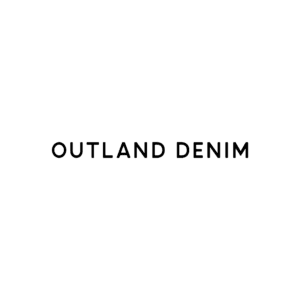
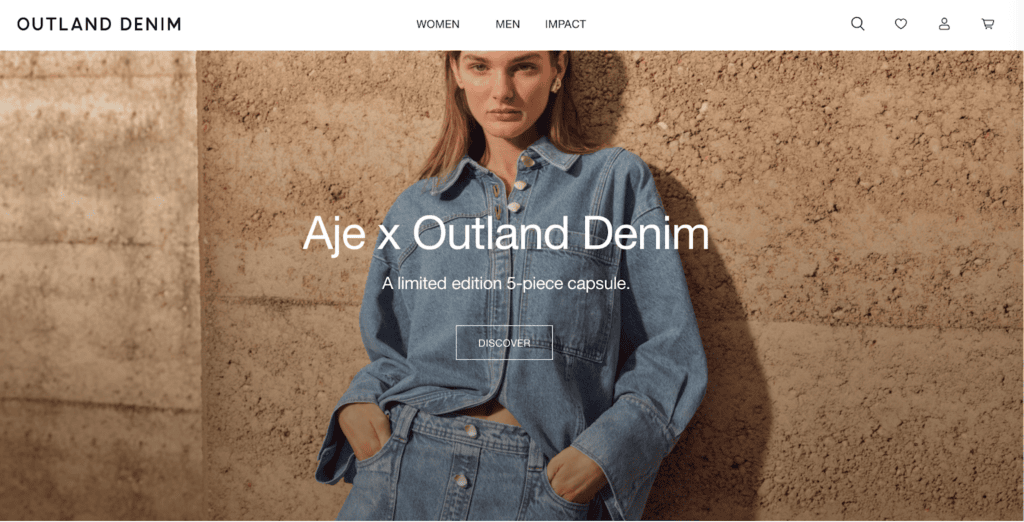
“We source the finest raw materials from around the world while offering sustainable employment and training opportunities to women who have experienced exploitation.”
Outland Denim
🌎
How do they ensure their sustainability?
Outland Denim ensures their sustainability by sourcing a high proportion of low-impact textile and packaging materials, minimizing textile waste, and implementing low-input (water, energy, and chemical) techniques to reduce their environmental impacts.
- First, they prioritize the use of organic and natural materials for their jeans, including organic cotton certified by the Global Organic Textile Standard (GOTS), lyocell (Lenzing’s TENCEL™), recycled cotton, cotton under the Better Cotton Initiative, linen, and recycled polyester. Additionally, their packaging is recyclable.
- Secondly, they have waste-reduction programs such as the collection and repurposing of factory floor waste, the collection and distribution of deadstock, and the resale of Outland garments via AirRobe. On top of that, Outland Denim utilizes advanced technology by Jeanologia—laser and ozone finishing together with e-Flow washing—to reduce the inputs of water, energy, and chemicals in manufacturing their jeans. For example, ozone finishing uses 65% less water, 20% less energy, and 80% less chemicals than traditional techniques.
- Last but not least, they use renewable energy in their supply chain to reduce their climate impact.
🌐
How do they ensure their ethics?
Outland Denim has a Suppliers’ Code of Conduct that covers four of the ILO’s Fundamental Principles and Rights at Work. They trace all of the supply chain and visit their suppliers regularly. Additionally, they ensure that workers in the final production stage are paid a living wage.
🤝
Are they part of any giving-back programs?
Outland Denim employs people from varying vulnerability and social injustice backgrounds, providing them with opportunities, skills acquisition, living wages, and education.
🛍️
What is their product range?
- Best for: womenswear, menswear
- Product range: jeans, shorts, skirts, jackets, shirts, T-shirts, dresses, overalls, jumpsuits
- Price range: $$
- Size range: S–3XL
Outerknown: Stylish Clothes Made Sustainably and Ethically


“We are driven by a passion for responsible action, courageous change, and great clothes.”
Outerknown
🌎
How do they ensure their sustainability?
Outerknown places sustainability at their core by using eco-friendly materials such as hemp, organic cotton, recycled cotton, and responsible wool in their clothing, reducing the environmental impact.
- In 2022, these preferred fibers accounted for 95% of their collection. The brand’s Outerworn platform also offers customers a chance to buy and sell pre-loved pieces, contributing to closing the loop in fashion. Furthermore, they partner with Project Vermont to give new purpose to materials that would otherwise end up in landfills.
- Additionally, Outerknown strives to reduce their footprint by working with two B Corp Certified suppliers and having 8 facilities running on renewable energy.
🌐
How do they ensure their ethics?
Outerknown maintains ethics by promoting the highest labor standards in alignment with the Fair Labor Association.
- They also publicly share their Code of Conduct, which covers all of the ILO’s Fundamental Principles and Rights at Work.
- Furthermore, Outerknown provides Fairtrade Premium, which has improved workers’ livelihoods in their supply chain via workers’ chosen programs in healthcare, education, accommodation, and financial independence.
🤝
Are they part of any giving-back programs?
Outerknown gives back to non-profits that align with their values and help make a larger impact. They work with organizations like Brother Benno, The Ocean Cleanup, Ocean Conservancy, Surfrider Maui Chapter, Surfrider Foundation, and Everytown.
🛍️
What is their product range?
- Best for: menswear, womenswear
- Product range: shirts, pants, T-shirts, tops, sweaters, dresses, hoodies, shorts, denim, jackets, blazers, jumpsuits, playsuits, swimwear
- Price range: $$$
- Size range: XS–XL
Kuyichi: Made-To-Last, Timeless Denim Clothing Items


“At Kuyichi we take great care in the design of our pure goods focusing on the development of timeless products that can become your favourite. Not only do they have to stand the continuous change of trends, but they should also be worn until they tear. We choose high-quality materials and work on the longevity of our jeans constantly to achieve this. ”
Kuyichi
🌎
How do they ensure their sustainability?
Kuyichi’s sustainability efforts start with sourcing a high proportion of low-impact materials.
- They prioritize organic fibers, including GOTS-certified cotton, linen, and hemp, as well as recycled fibers, including recycled cotton, recycled polyester, and recycled spandex (LYCRA® T400® EcoMade).
- Additionally, Kuyichi uses responsibly made, circular, regenerated cellulose fibers (lyocell and modal) from Lenzing. Further down the life-cycle in the manufacturing stage, Kuyichi reduces their environmental impacts by using renewable energy in their supply chain and employing low-impact washing techniques like laser, ozone, and e-flow machinery. They also avoid fabric waste during production by either increasing production quantities or using leftovers in a different style. At the end of a Kuyichi product’s life, consumers can either hand it to the Kuyichi x Indigo Ravens shop to be reworked into other pieces or mail it back to Kuychi to be repaired, refurbished, and sold again. Their Give-Back Program offers store credit for the returns of Kuyichi items.
- Lastly, they offset their carbon emissions by partnering with the Climate Neutral Group.
🌐
How do they ensure their ethics?
Kuyichi is a member of the Fair Wear Foundation and has annual brand performance checks by the organization.
- They also pledge transparency in their supply chain and submit the list of their suppliers on Open Supply Hub.
- They monitor health and safety issues by visiting all of their suppliers responsible for their final stage of production.
- Additionally, their Supplier Code of Conductcovers all of the ILO’s Fundamental Principles and Rights at Work.
🤝
Are they part of any giving-back programs?
Instead of holding sales on Black Friday, Kuyichi donates a percentage of their sales to good causes. In 2022, they donated 20% of the Black Friday Weekend’s revenue to their local Utrecht food bank (voedselbank).
🛍️
What is their product range?
- Best for: womenswear, menswear
- Product range: jeans, pants, T-shirts, shirts, sweaters, knitwear, skirts, shorts, dresses, jackets, accessories
- Price range: $$
- Size range: XS–XL
Seventy + Mochi: Affordable and Accessible Denim Made Sustainably

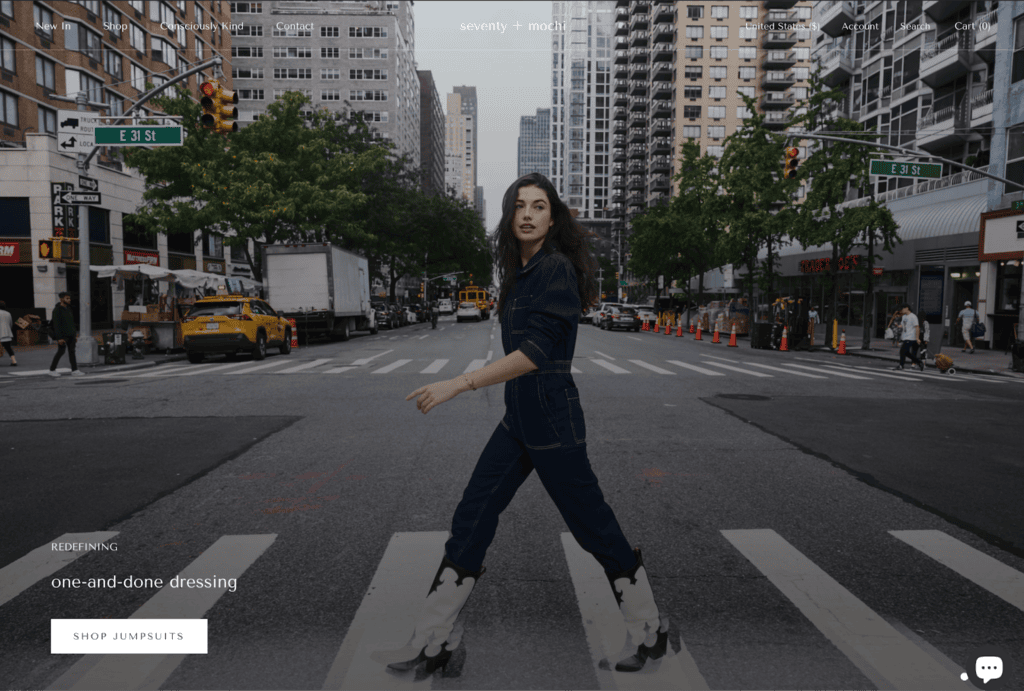
“Our entire collection is consciously designed to reduce our impact on the planet and all of our components are carefully researched and selected to help us create the most sustainable products possible.”
Seventy + Mochi
🌎
How do they ensure their sustainability?
Seventy + Mochi promotes sustainability by using a high proportion of eco-friendly materials, minimizing textile waste, and implementing low-impact manufacturing processes.
- Firstly, they source recycled cotton, organic cotton, and hemp—three of the most sustainable fabrics— for their garments. Regarding the stretch element for products like jeans, they opt for eco-made elastane and ROICA™ which are degradable and use less harmful chemicals in their production than conventional elastane. Moreover, Seventy + Mochi sources compostable packaging (and no virgin plastic wraps), labels made with organic cotton or recycled polyester, and swing tags with an FSC certification.
- Secondly, they minimize textile waste by operating on limited production runs and facilitating recycling through their Circle Back Program.
- Last but not least, Seventy + Mochi uses Jeanologia‘s Environmental Impact Measuring tool to monitor the impact of all the garments they manufacture, and they lower their impact with advanced washing technology. For example, they use laser washing to eliminate water waste and increase energy efficiency.
🌐
How do they ensure their ethics?
Seventy + Mochi traces most of their supply chain and audits some of their suppliers.
🤝
Are they part of any giving-back programs?
Seventy + Mochi is not known to be part of any giving-back programs.
🛍️
What is their product range?
- Best for: womenswear
- Product range: jeans, bottoms, jumpsuits, all-in-ones, tops, dresses, sets, Pablo vests, jackets,
- Price range: $$
- Size range: XXS–XXL
ASKET: Timeless Clothes Made Under Full Transparency and With Life-Cycle Responsibility
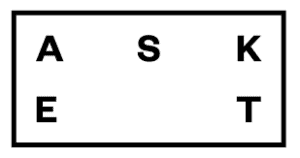
“Our mission is to end overconsumption and restore value to the clothing industry.”
Jakob Dworsky, founder of ASKET
🌎
How do they ensure their sustainability?
ASKET ensures sustainability by reducing waste and using less energy throughout the life-cycle of their garments.
- They tackle the textile waste problem with their Repair Program, which helps keep clothes last longer, and their Revival Program, which diverts used garments from landfills to be repaired, renewed, resold, or recycled. On top of that, they use various recycled fabrics, including GRS-certified recycled wool, recycled cotton, and recycled silk. ASKET also runs a Care Program, helping customers keep their garments fresh longer while using less energy, lowering the environmental impact of the usage stage.
- Additionally, ASKET’s collection includes eco-friendly materials such as organic cotton, linen, and TENCEL™ lyocell. And finally, in an effort to encourage customers to buy and waste less, they are fully transparent about the environmental impact of their clothes.
🌎
How do they ensure their sustainability?
ASKET maintains ethics through fair labor practices, responsible sourcing, and a commitment to transparency in their supply chain. In 2022, their average traceability score across their entire collection was 96.0%.
🤝
Are they part of any giving-back programs?
ASKET is not known to be part of any giving-back programs.
🛍️
What is their product range?
- Best for: high-quality, essential, versatile wardrobe pieces
- Product range: tops, sweaters, pants, chinos, jackets, coats, socks, underwear
- Price range: $$$
- Size range: XS–XXL
Why Is It Important to Buy Products Made of More Sustainable Fabrics
It is important to buy products made of more sustainable fabrics because a sustainable textile industry has a lower carbon footprint, helps save natural resources, and is better for forests, animals, and humans.
Buying Sustainable Fabrics Reduces Your Carbon Footprint
The production of clothing and footwear is estimated to contribute 10% of global greenhouse gas emissions—more than all international flights and shipping combined. If the fashion industry were a country, it would be the fourth largest emitter of carbon dioxide.
One way to reduce the carbon footprint of the clothes you buy is to opt for sustainable fabrics. Sustainable fabrics, which are often made with natural or recycled fibers, have relatively low carbon footprints compared to petroleum-based fabrics. For example, organic cotton made in the US has a carbon footprint of 2.35 kg CO2 (per ton of spun fiber)—a quarter of polyester’s carbon footprint.
Buying Sustainable Fabrics Reduces Demand for Natural Resources and Waste Management
The textile industry uses water and land to grow natural fibers. It is estimated that 79 billion cubic meters of water were used for the sector worldwide in 2015. For example, producing a single cotton T-shirt requires as much water as one person drinks for 2.5 years (2,700 liters of fresh water).
Worse yet, the textile economy is vastly more linear than circular: the largest amount of resources used in clothes ended up in landfills (instead of being recycled to remake clothes). According to a report by the Ellen MacArthur Foundation,
- Less than 3% of materials used in the textile economy in 2015 came from recycled sources.
- In other words, more than 97% of resources used in making clothes are newly extracted.
When clothing items are disposed of within a short period of time—under a year in the case of half of all fast fashion clothes—the natural systems that provide raw materials for fabrics don’t have enough time to recover and regenerate, which could lead to ecological breakdown.
Sustainable fabrics are made with less water and emissions while lasting longer:
- Because they are durable, you don’t need to buy new clothes too often.
- Thus, you help reduce the pressure to extract more resources for making new items.
Similarly, making and consuming sustainable fabrics made with recycled materials reduces the demand for virgin materials while helping tackle waste management.
Buying Sustainable Fabrics Encourages Sustainable Management of Forests
Sustainable plant-based fabrics are made with raw materials from forests and plantations that are sustainably managed, such as complying with FSC standards.
When you buy sustainable plant-based fabrics, you discourage unsustainable forestry practices like illegal logging. You can help reduce deforestation, biodiversity loss, and the effects of climate change.
Buying Sustainable Fabrics Encourages Fairer Treatment of Animals
The fashion industry is rife with animal mistreatment when it comes to making animal-based fabrics like wool or silk. Every year, billions of animals suffer and die for clothing and accessories.
Buying sustainable vegan alternatives can help to reduce the pressure on raising more and more animals to meet the demand for animal-based fabrics while sacrificing their well-being and lives.
Suppose you have to buy fabrics made with, for example, wool or silk; make sure you only choose brands committed to cruelty-free products. In that case, you help advocate better treatments for animals raised within the textile industry.
Using Sustainable Fabrics Encourages Fairer Treatment of Textile Workers
Recent statistics from UNICEF estimated as many as 170 million child laborers worldwide, many of whom were engaged in some form of work in the textile industry. They don’t get paid minimum wages and often work long hours.
When you buy sustainable fabrics from brands transparent about the working conditions at their factories, you discourage the use of child labor and help promote better working conditions for textile workers.
How Can You Generally Buy More Sustainable Fabrics
The key to sustainably buying fabrics is to check on relevant environmental and original certifications.
For natural fabrics:
- Global Organic Textile Standard (GOTS): A globally recognized certification system that ensures a certain threshold of organic content has been met. It covers manufacturing, packaging, labeling, transportation, and distribution (but not what happens in the fields where crops are grown).
- USDA Certified Biobased Product: The USDA BioPreferred® Certification is a voluntary certification offered by the United States Department of Agriculture. The certification identifies products made from plants or other renewable materials.
- Ecolabel: Ecolabel is the official European Union voluntary label recognized worldwide for certified products with a guaranteed, independently verified low environmental impact. The label requires high environmental standards throughout the entire life-cycle: from raw material extraction through production and distribution to disposal. It also encourages companies to develop innovative, durable, easy-to-repair, and recyclable products.
For plant-based semi-natural/semi-synthetic fabrics:
- Forest Stewardship Council: An FSC certification ensures that the wood (or wood-like material) comes from responsibly managed forests that provide environmental, social, and economic benefits.
There are two types of FSC Certification:- FSC Forest Management Certification, with a focus on the origin of the wood—the forest.
- FSC Chain of Custody Certification, which focuses on the path from the forest to the customer’s home.
- Program for Endorsement of Forest Certification: PEFC’s approaches to sustainable forest management are in line with protecting the forests globally and locally and making the certificate work for everyone. Getting a PEFC certification is strict enough to ensure the sustainable management of a forest is socially just, ecologically sound, and economically viable but attainable not only by big but small forest owners.
For recycled fabrics:
- Recycled Claim Standard (RCS): The Textile Exchange RCS was originally developed as an international, voluntary standard that sets requirements for third-party certification of Recycled input and chain of custody.
- The Global Recycled Standard (GRS): The Global Recycled Standard (GRS) is an international, voluntary, full product standard that sets requirements for third-party certification of Recycled Content, chain of custody, social and environmental practices, and chemical restrictions. It can be used for any product with more than 20% recycled material.
For all types of fabrics:
- STeP by OEKO-TEX®: STeP by OEKO-TEX® is an independent certification system for brands, retailers, and manufacturers from the textile and leather industry. It communicates organizational environmental measures, including reducing carbon footprint and water usage.
- OEKO-TEX® Standard 100: OEKO-TEX® labels aim to ensure that products pose no risk to human health (i.e., containing banned chemicals).
Some certifications that are signaling brands’ efforts toward lowered environmental impacts and a circular economy are:
- B Corp Certification: The label B Corp is a certification reserved for for-profit companies. Certified holders are assessed on their social and environmental impacts.
- Cradle2Cradle certification: Cradle2Cradle provides a standardized approach to material circularity. It assesses whether products have been suitably designed and made with the circular economy in mind covering five critical categories: material health, material reuse, renewable energy and carbon management, water stewardship, and social fairness.
Final Thoughts
The sustainability of jeans varies significantly, depending on the denim fabrics used as the foundation and the finishing techniques employed to create that iconic jeans look.
By purchasing new or pre-loved denim clothes from brands that commit to sustainability, you support their mission to create a fairer and less harmful textile industry for all lives on Earth.
Here is the list (again) of the most sustainable denim clothing brands:
- Unspun
- E.L.V Denim
- Nudie Jeans
- MUD Jeans
- Triarchy
- ARMEDANGELS
- Boyish
- non
- King of Indigos
- Rudy Jude
- Outland Denim
- Outerknown
- Kuyichi
- Seventy + Mochi
- ASKET
To make your jeans usage even more sustainable, follow these steps:
- Buy second-hand, recycled, or upcycled jeans.
- While using jeans, maximize the number of wears between washes and keep them as long as possible.
- At the end-of-life of your jeans, upcycle the materials to extend their usage and arrange for them to be recycled or properly disposed of.
Stay impactful,

Sources
- Impactful Ninja: How Sustainable Are SyntheticFabrics? A Life-Cycle Analysis
- Science Direct: Life-cycle assessment (LCA)
- Unspun: Home
- E.L.V. DENIM: Home
- Nudie Jeans: Home
- MUDJeans: Home
- Triarchy: Home
- ARMEDANGELS: Home
- Boyish: Home
- non: Home
- Kings of Indigo: Home
- Rudy Jude: Home
- Outland Denim: Home
- Outerknown: Home
- Kuyichi: Home
- Seventy + Mochi: Home
- ASKET: Home
- Unspun: Custom-Fit Jeans
- Good On You: Brand Directory | Unspun
- Unspun: Vega
- Unspun: Meet VegaTM
- Unspun: Life Cycle Assessment (LCA) for Unspun’s 3D Woven Pants
- B Corporation: Unspun
- E.L.V. DENIM: CUSTOM DENIM
- E.L.V. DENIM: OUR SUSTAINABLE DESIGN PROCESS
- E.L.V. DENIM: JOIN THE PRE-LOVED REVOLUTION
- Reskinned: Home
- Curate & Rotate: Home
- Nudie Jeans: Men’s Jeans
- Nudie Jeans: Women’s Jeans
- Good On You: Brand Directory | Nudie Jeans
- Nudie Jeans: Nudie Jeans Sustainability Report 2022
- Nudie Jeans: Sustainability | 100% Organic Cotton
- Nudie Jeans: Sustainable Product | Repair
- Nudie Jeans: Sustainable Product | Reuse
- Nudie Jeans: Sustainable Product | Recycle
- Nudie Jeans: Re-use — Drop 17
- Nudie Jeans: We might just be the most transparent denim company in the world…
- Nudie Jeans: List of Suppliers
- Fair Wear Foundation: Home
- Fair Trade International: Small-scale Producer Organizations
- Thread Together: Home
- Good On You: Brand Directory | MUDJeans
- MUDJeans: LIFE CYCLE ANALYSIS (LCA) REPORT
- MUDJeans: Creating a world without waste
- MUD Jeans: Lease A Jeans
- MUDJeans: FAQ
- MUDJeans: SUSTAINABILITY REPORT 2022
- Impactful Ninja: How Sustainable Are Elastane Fabrics? A Life-Cycle Analysis
- MUDJeans: LEASE A JEANS
- MUDJeans: Happy jean makers, better jeans
- Justdiggit: Home
- Triarchy: Jeans
- Triarchy: How Much Plastics Are You Wearing
- Textile Exchange: The RCS and GRS are designed to boost the use of recycled materials.
- Good On You: Brand Directory | Triarchy
- Triarchy: Responsibility
- GreenStory: Home
- Renoon: Home
- Triarchy: Code of Conduct
- International Labour Organization: ILO Declaration on Fundamental Principles and Rights at Work
- Isla Urbana: Home
- Good On You: Brand Directory | ARMEDANGELS
- Global Organic Textile Standard (GOTS): Home
- Impactful Ninja: How Sustainable Are Wood-Based Fabrics? A Life-Cycle Analysis
- ARMEDANGELS: THE JOURNEY FROM RAW MATERIAL TO PRODUCT | Recycling
- ARMEDANGELS: About Us
- Impactful Ninja: How Sustainable Are Silk Fabrics? A Life-Cycle Analysis
- Impactful Ninja: How Sustainable Are Natural Fabrics? A Life-Cycle Analysis
- Impactful Ninja: How Sustainable Are Synthetic Fabrics? A Life-Cycle Analysis
- ARMEDANGELS: RETURN YOUR OLD CLOTHES | RECYCLING WITH BENEFITS
- ARMEDANGELS: DETOX DENIM
- ARMEDANGELS: Care Guide
- ARMEDANGELS: Repair Guide
- ARMEDANGELS: ACTION REPORT 2021
- Fair Wear Foundation: Home
- ARMEDANGELS: LIVING WAGE PROJECT
- ARMEDANGELS: Collaborations
- Doctors Without Borders: Home
- German Zero: Home
- Climate Emergency Fund: Home
- Sea Watch: Home
- Textile World: Building Trust In Dope-Dyed And Vegetable-Dyed Textiles
- Good On You: Brand Directory | Boyish
- Boyish: Sustainability
- Impactful Ninja: How Sustainable Are Recycled Fabrics? A Life-Cycle Analysis
- Textile Exchange: Organic Content Standard
- Boyish: About Us
- Boyish: Boyish Supplier Code of Conduct
- Intertek: Home
- Good On You: Brand Directory | non
- Non: Blueprints
- Impactful Ninja: How Sustainable Are Organic Cotton Fabrics? A Life-Cycle Analysis
- Impactful Ninja: How Sustainable Are Recycled Cotton Fabrics? A Life-Cycle Analysis
- Impactful Ninja: How Sustainable Are Denim Fabrics? A Life-Cycle Analysis
- Non: Sustainably Sourced Selvedge Denim | Our Ethos
- ACS Publications: Critical Review on Sustainability in Denim: A Step toward Sustainable Production and Consumption of Denim
- Non: Code of Conduct
- International Labor Organization (ILO): ILO’s Declaration on Fundamental Principles and Rights at Work
- Global Living Wage Coalition: Home
- Bluesign: Home
- OEKO-TEX: Certifications according to OEKO-TEX STeP
- Social Accountability International: SA8000
- Kings of Indigo: 5 Pillars of Sustainability | Planet-Friendly Materials
- Impactful Ninja: How Sustainable Are Recycled Fabrics? A Life-Cycle Analysis
- Impactful Ninja: How Sustainable Are Hemp Fabrics? A Life-Cycle Analysis
- Impactful Ninja: How Sustainable Are Linen Fabrics? A Life-Cycle Analysis
- Impactful Ninja: How Sustainable Are TENCELTM Fabrics? A Life-Cycle Analysis
- Kings of Indigo: 5 Pillars of Sustainability | Waste Conscious
- Kings of Indigo: 5 Pillars of Sustainability | Less Water Use
- Jeanologia: Environmental Impact Measuring (EIM)
- Kings of Indigo: Kings Of Indigo X LABFRESH
- Kings of Indigo: 5 Pillars of Sustainability | Clean transport
- Retraced: Home
- Kings of Indigo: 5 Pillars of Sustainability | Responsible Production
- Good On You: Brand Directory | Kings of Indigo
- Amfori: BSCI
- Rudy Jude: Utility jeans
- Good On You: Brand Directory | Rudy Jude
- Rudy Jude: About Us
- B Corporation: Outland Denim
- Outland Denim: Environmental
- Good On You: Brand Directory | Outland Denim
- Outland Denim: Our raw materials
- Global Organic Textile Standard: Home
- Impactful Ninja: How Sustainable Are Lyocell Fabrics? A Life-Cycle Analysis
- Lenzing: TENCEL
- Better Cotton Initiative: Home
- Impactful Ninja: How Sustainable Are Recycled Polyester? A Life-Cycle Analysis
- Jeanologia: Home
- Outland Denim: Suppliers’ Code of Conduct
- Outland Denim: About
- Outerknown: Men’s S.E.A Jeans
- Outerknown: Women’s S.E.A Jeans
- Outerknown: FAQ
- Impactful Ninja: How Sustainable Are Wool Fabrics? A Life-Cycle Analysis
- Outerknown: Progress Every Step Of The Way
- Outerknown: What is Outerworn?
- Outerknown: S.E.A JEANS
- CISION PR Newswire: Outerknown Introduces Sustainable Denim And A Lifetime Guarantee With S.E.A. JEANS
- Shopify: OUTERKNOWN Supplier Code of Conduct
- Fair Labor Association: Home
- Fairtrade: Fairtrade Premium
- Brother Benno: Home
- The Ocean Cleanup: Home
- Ocean Conservancy: Home
- Surfrider Maui Chapter: Home
- Surfrider Foundation: Home
- Everytown: Home
- Kuyichi: Men’s Jeans
- Kuyichi: Women Jeans
- Good On You: Brand Directory | Kuyichi
- Kuyichi: PURE MATERIALS | PURE PROCESS | CERTIFICATES & INITIATIVES
- Impactful Ninja: How Sustainable Are Linen Fabrics? A Life-Cycle Analysis
- Impactful Ninja: How Sustainable Are Hemp Fabrics? A Life-Cycle Analysis
- Impactful Ninja: How Sustainable Are Spandex Fabrics? A Life-Cycle Analysis
- Kuyichi: T400 EcoMade
- Kuyichi: TENCEL™ X REFIBRA™: LENZING’S CIRCULAR APPROACH TO RECYCLED FIBRE
- Kuyichi: TENCEL™ LYOCELL: THE BIODEGRADABLE FIBRE YOU NEED TO DISCOVER
- Kuyichi: TENCEL™ MODAL FIBRES: VERY SOFT AND BETTER FOR THE EARTH
- Kuyichi: FAQ & Contact Information
- Kuyichi: SUSTAINABILITY REPORT 2022
- Kuyichi: ABOUT THE END-OF-LIFE OF YOUR PURE GOODS
- TRENDS ARE CIRCULAR: KUYICHI
- Climate Neutral Group: Home
- Kuyichi: Transparency Pledge
- Open Supply Hub: Home
- Good On You: Brand Directory | Seventy + Mochi
- Seventy + Mochi: Consciously Kind
- Impactful Ninja: 20 Most Sustainable Fabrics. The Full Life-Cycle Analysis
- Seventy + Mochi: Jeans
- Asahi Kasei: ROICA
- Forest Stewardship Council: Home
- Seventy + Mochi: Circle Back Program
- ASKET: The Repair Program
- ASKET: The Revival Program
- ASKET: Materials | Recycled Wool
- Impactful Ninja: How Sustainable Are Silk Fabrics? A Life-Cycle Analysis
- ASKET: Materials | Recycled Synthetics
- ASKET: The Care Program
- ASKET: Full Transparency
- ASKET: TRACKING HOW WE FOLLOW OUR PRINCIPLES
- European Parliament: The impact of textile production and waste on the environment (infographic)
- Science Direct: The challenge of “Depeche Mode” in the fashion industry – Does the industry have the capacity to become sustainable through circular economic principles, a scoping review
- Science Direct: Carbon Footprint of Textile and Clothing Products
- European Parliament: Environmental impact of the textile and clothing industry
- European Parliament: What if fashion were good for the planet?
- Ellen MacArthur Foundation: A New Textiles Economy: Redesigning fashion’s future
- McKinsey: Style that’s sustainable: A new fast-fashion formula
- Forest Stewardship Council: Home
- Our World in Data: Deforestation and Forest Loss
- Our World in Data: Renewable Energy
- Peta: Animals Used For Clothing
- The Guardian: Child labour in the fashion supply chain
- Impactful Ninja: How Sustainable Are Natural Fabrics? A Life-Cycle Analysis
- Global Organic Textile Standard (GOTS): Home
- BioPreferred: WHAT IS THE BIOPREFERRED PROGRAM?
- European Commission: Environment | EU Ecolabel
- Impactful Ninja: How Sustainable Are Semi-Natural/Semi-Synthetic Fabrics? A Life-Cycle Analysis
- Forest Stewardship Council
- FSC Forest Management Certification
- FSC Chain of Custody Certification
- Textile Exchange: The RCS and GRS are designed to boost the use of recycled materials
- Program for Endorsement of Forest Certification
- Impactful Ninja: How Sustainable Are Recycled Fabrics? A Life-Cycle Analysis
- Textile Exchange: Recycled Claim Standard
- Textile Exchange: Global Recycled Standard
- OEKO-TEX: Certification according to STeP by OEKO-TEX®
- OEKO-TEX: OEKO-TEX® Standard 100
- B Corp Certification: Home
- C2CCertified: Home















